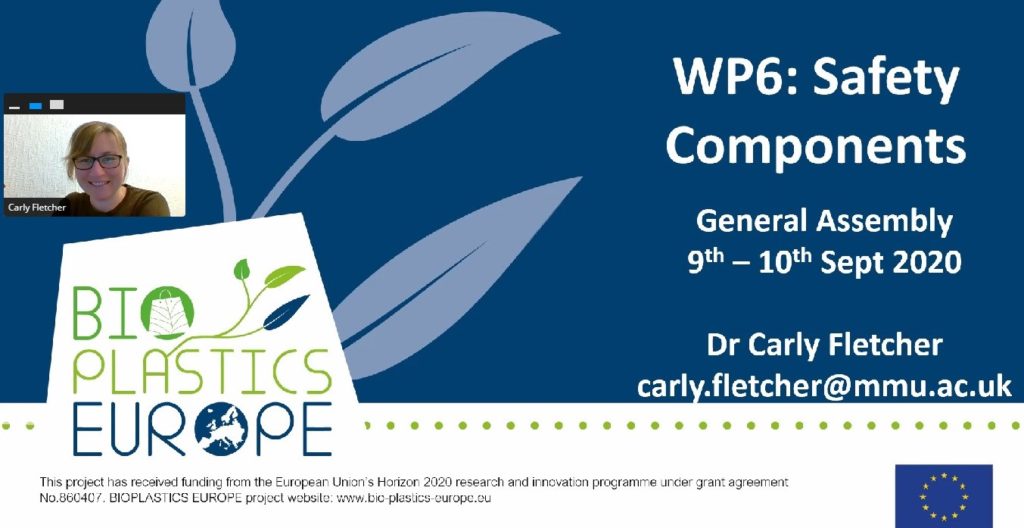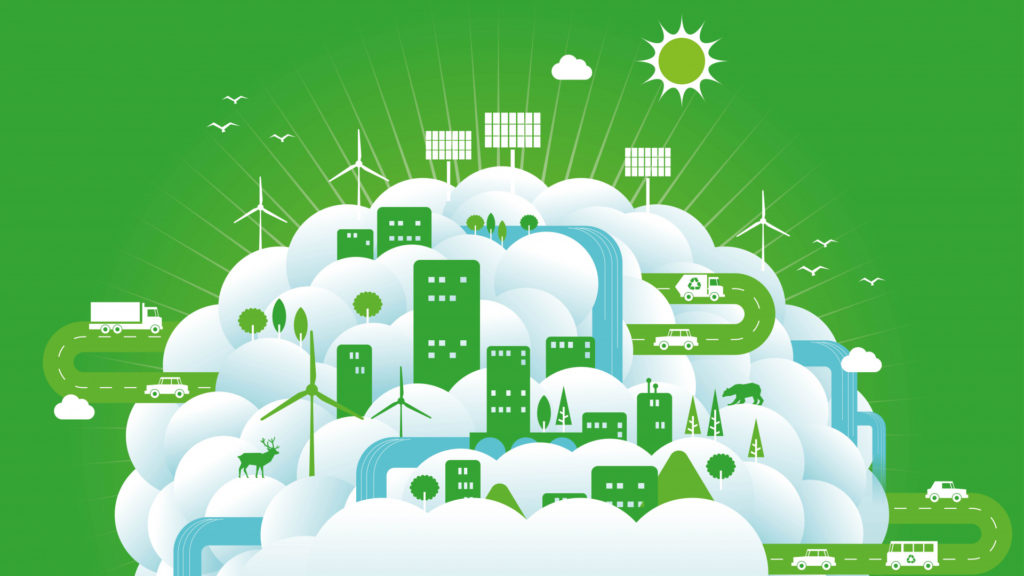
To mark the completion of its first year, project partners of BIO-PLASTICS EUROPE took part in a virtual, socially-distanced General Assembly – reducing the collective carbon footprint associated with travelling to the event. Across two days (9 / 10 September), over sixty participants from Europe and SE-Asia came together to present the achievements of the project so far.
The BIO-PLASTICS EUROPE project aims to develop and implement sustainability-based solutions for bio-based plastic production. Over the past twelve months, 22 partners across the diverse BIO-PLASTICS EUROPE consortium have been working on a range of aspects needed to support a societal transformation towards a circular economy through the use of bio-based plastics. Specifically, we are targeting common plastic products such as beach toys, food packaging (yoghurt pots and the films used to cover ready meals), reusable plastic “picnic” cutlery and agricultural products. Research activities include innovative product design, environmental and economic assessments, business models and end-of-life management options (e.g. composting, recycling, etc.).
How did Manchester Met contribute to the event?
Here, at Manchester Metropolitan University and PrintCity, we are leading research into the safe use and end-of-life management of bio-based products. Recognising the importance of product safety when encouraging market uptake, we are developing a Safety Protocol for the production, use and waste management of bio-based products. During the General Assembly, Dr Carly Fletcher presented work on understanding the current EU approach to safety with respect to bio-based plastic products.
Why is it important?
This initial exploration of European regulations and standards will form the basis from which a Safety Protocol will be developed. Over the next three years, we will be enlisting the help of stakeholders through a series of workshops. Through these workshops, we intend to explore the additional factors that should be considered when replacing traditional plastics with bio-based materials in products such as toys and food packaging. This is a critical part of the overall BIO-PLASTICS EUROPE project as the uptake and use of bio-based plastics will not succeed unless consumers, manufacturers and regulators are convinced that the products are safe, both in terms of human health and environmental safety.
What does the future hold?
The general assembly also allowed for project partners to discuss the steps needed to make the next three years just as successful as the first. In making this project successful, we believe that BIO-PLASTICS EUROPE can make a real contribution to the plastics value chain and contribute to Europe’s transition to the circular economy.
And that is just the beginning, BIO-PLASTICS EUROPE is one of many ongoing projects that research staff at PrintCity are involved with, all of which align with Circular Economy principles.
Across an interdisciplinary team of researchers, technicians and academic staff, PrintCity are involved in projects that are seeking to educate waste citizens of the future (Erasmus+), turn waste from single-use plastics into 3D-printing filament (TRANSFORM-CE), recycle construction waste through the 3D printing of concrete into street furniture (CIRMAP) and promote the use of repair cafes to prolong the lifespan of consumer electronics (SHAREPAIR).
BIO-PLASTICS EUROPE has received funding from the European Union’s Horizon 2020 research and innovation programme under grant agreement No. 860407.
To find out more visit: https://bioplasticseurope.eu/.
